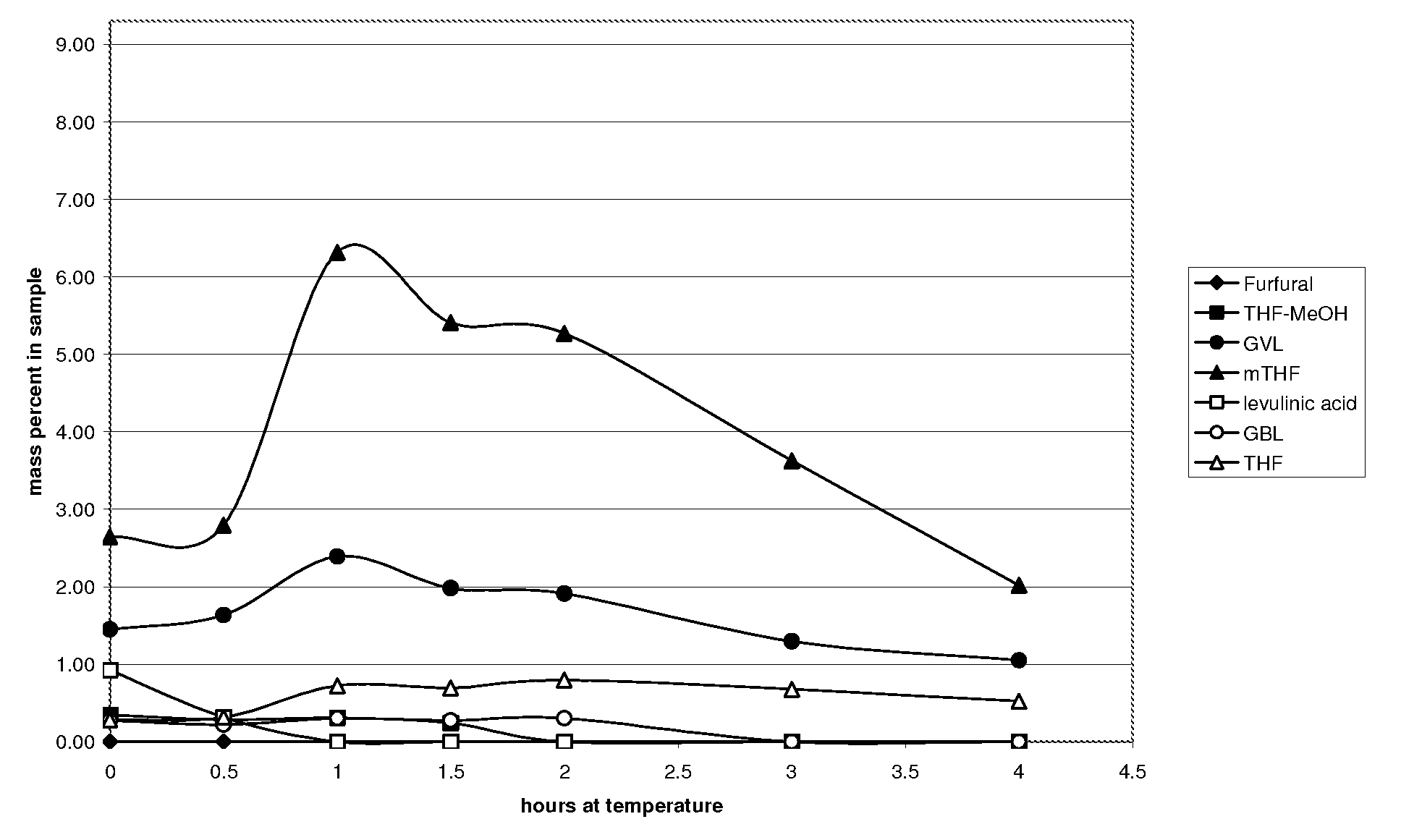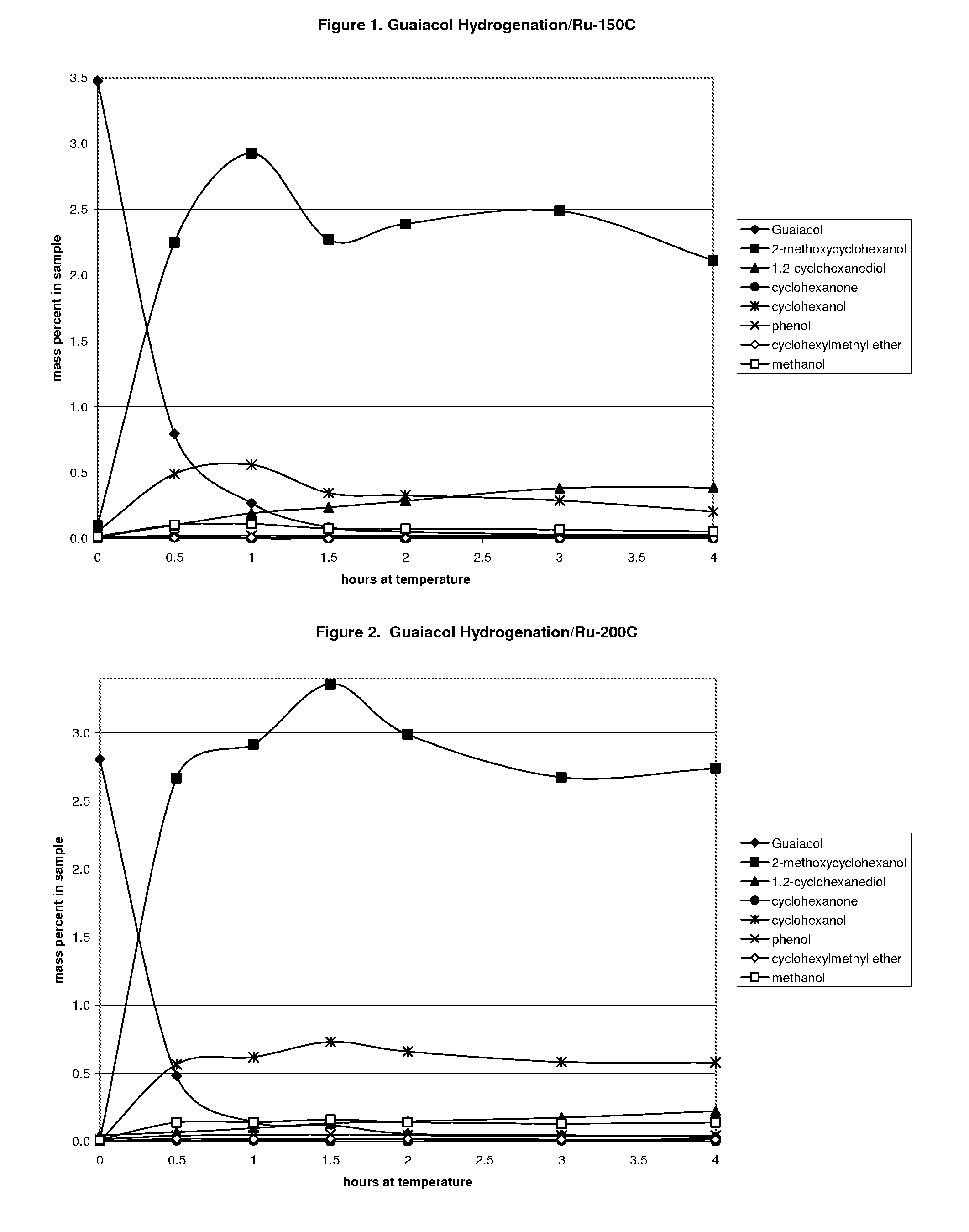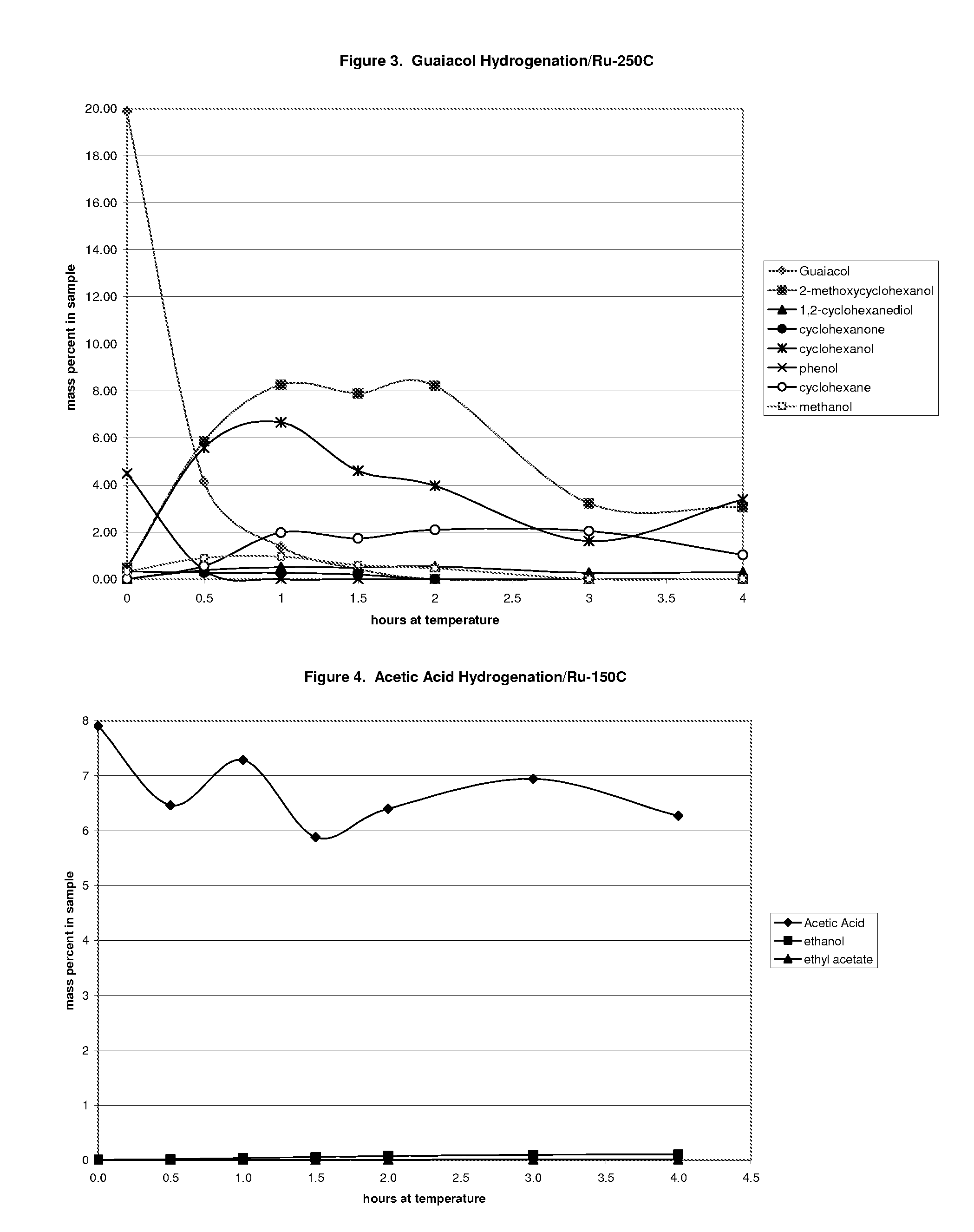Palladium Catalyzed Hydrogenation of Bio-Oils and Organic Compounds
a bio-oil and organic compound technology, applied in the direction of metal/metal-oxide/metal-hydroxide catalysts, physical/chemical process catalysts, bulk chemical production, etc., can solve the problem of high char/coke production that plugged the catalyst bed without liquid hydrocarbon fuel production, decomposition and polymerization more rapidly, and reaction temperatures above 80° c. are unsuitable for hydrogenation of bio-oils
- Summary
- Abstract
- Description
- Claims
- Application Information
AI Technical Summary
Benefits of technology
Problems solved by technology
Method used
Image
Examples
examples
[0066]Method for Batch Reactor Tests. A Parr 4562M 450 mL Hastelloy C pressure vessel was used for these reactions. The catalyst (5 g) was placed in the reactor with hydrogen gas at 4.2 MPa and reduced at 250° C. for 2 h, and then cooled. The catalysts were either a 3 wt % palladium on a carbon granule (12×50 mesh) produced by the incipient wetness method or 7.8 wt % ruthenium on carbon extrudates (1.5 mm) produced by Engelhard. A vacuum was drawn on the reactor and the liquid mixture (200 g) of 5 wt %, each of furfural, guaiacol (2-methoxy-phenol), and acetic acid, in water was pulled into the reactor vessel. The reactor was then pressurized to 6.9 MPa with hydrogen and heated to desired temperature. The solution was agitated with the turbine paddle stirrer at 1000 rpm throughout the test. The desired operating pressure of 13.8 MPa was set on the hydrogen gas regulator and maintained throughout the experiment. By this method hydrogen was added to the reactor as it was used in the r...
PUM
| Property | Measurement | Unit |
|---|---|---|
| temperature | aaaaa | aaaaa |
| mass % | aaaaa | aaaaa |
| temperature | aaaaa | aaaaa |
Abstract
Description
Claims
Application Information
 Login to View More
Login to View More - R&D
- Intellectual Property
- Life Sciences
- Materials
- Tech Scout
- Unparalleled Data Quality
- Higher Quality Content
- 60% Fewer Hallucinations
Browse by: Latest US Patents, China's latest patents, Technical Efficacy Thesaurus, Application Domain, Technology Topic, Popular Technical Reports.
© 2025 PatSnap. All rights reserved.Legal|Privacy policy|Modern Slavery Act Transparency Statement|Sitemap|About US| Contact US: help@patsnap.com



